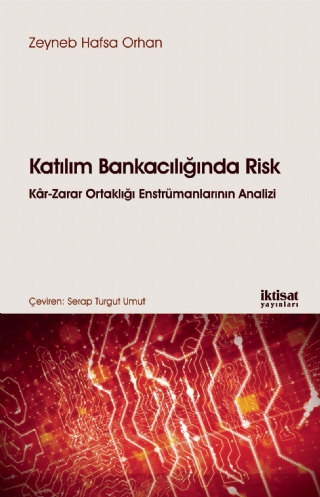Theology \ 2-2
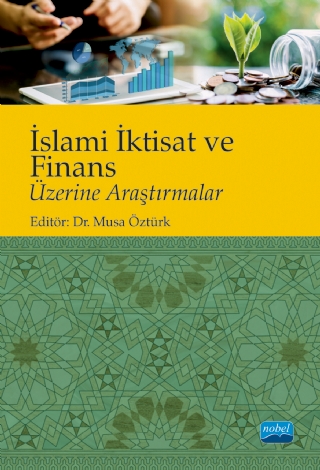
The problems we face today, where perhaps the fastest transformations in the history of humanity are experienced, trigger the search for a new normal, system and order in order to protect the current gains and to ensure an inclusive and sustainable growth and development process. These searches, which take place in almost every field, especially in socioeconomic and political fields; re-understanding the old, the re-discovery of the new, and the examination of the interaction between the old and the new. From an economic point of view as a result of these searches, discussions on the new economic system are being mobilized, and the problems of what will replace the old systems, how the new order will function, and how to define the roles of these new normally known economic actors are questioned -objectively and normatively. One of the efforts made in this context is the studies carried out within the scope of Islamic Economics and Finance, which is the richest in terms of experience, originality and consistency, and the impact/repercussion of these studies is increasing and expanding day by day across the world.
In order to support this effect/echo, this book, which was initiated by using the blind arbitrator process, begins by examining the subject of interest, which functions as litmus paper in terms of economic thought and systems. After the interest topic, there are sections on zakat, the state, solidarity institutions and participation banks, respectively. Within the scope of Islamic Finance; financing models, blockchain technology, behavioral finance and investment attorneyship are examined, followed by applied studies on the economy-finance relationship. Thus, it has been tried to contribute to the efforts of humanity in general and Turkey in particular to get rid of the systematic bottlenecks and deadlocks, and to the aims of understanding the old, discovering the new and examining the old-new interaction within the scope of Islamic Economics and Finance.
In order to support this effect/echo, this book, which was initiated by using the blind arbitrator process, begins by examining the subject of interest, which functions as litmus paper in terms of economic thought and systems. After the interest topic, there are sections on zakat, the state, solidarity institutions and participation banks, respectively. Within the scope of Islamic Finance; financing models, blockchain technology, behavioral finance and investment attorneyship are examined, followed by applied studies on the economy-finance relationship. Thus, it has been tried to contribute to the efforts of humanity in general and Turkey in particular to get rid of the systematic bottlenecks and deadlocks, and to the aims of understanding the old, discovering the new and examining the old-new interaction within the scope of Islamic Economics and Finance.

The process of "masking the society" with Covid-19 inevitably affects religious beliefs and practices. Social obligations and the sanctioning power of the state deeply affect the familiar things of religion such as gathering, worshiping collectively, synchronously repeating the sacred words, touching and feeling, in other words, the way religion is experienced. The physical nature of worship can be transferred to online environments, and unexpected and radical measures can be taken, such as closing mosques for worship as in Turkey, suspending Hajj by the Saudi government, or burning Muslims who died of Covid-19 in Sri Lanka, by government force. Similarly, New Age beliefs can continue to develop their market and gather new followers by associating bodily health with the transcendent by taking advantage of this gap, Muslims in India can be labeled as "super spreaders" of Covid-19, and in many places people are subject to social exclusion due to their religious identity. may be exposed.
Although the Covid-19 epidemic is a multidisciplinary and interdisciplinary phenomenon that needs to be dealt with within the framework of understanding, the effect of this process on religious beliefs and practices should be determined, and especially the process and its results should be discussed by the Turkish academy. It is thought that this book project, which consists of twelve chapters and was prepared with the participation of 14 authors who produce in fields such as sociology, sociology of religion and philosophy of religion, will contribute to the academicians and students working in the related field, as well as to the family of readers who are interested in this field.
Although the Covid-19 epidemic is a multidisciplinary and interdisciplinary phenomenon that needs to be dealt with within the framework of understanding, the effect of this process on religious beliefs and practices should be determined, and especially the process and its results should be discussed by the Turkish academy. It is thought that this book project, which consists of twelve chapters and was prepared with the participation of 14 authors who produce in fields such as sociology, sociology of religion and philosophy of religion, will contribute to the academicians and students working in the related field, as well as to the family of readers who are interested in this field.

Jerusalem contains a witness that has been given to very few cities in history. In the past century, the occupation of Jerusalem and the problems of the Islamic World have progressed in parallel. This situation requires a multidimensional evaluation with its intellectual, geographical, socio-cultural and economic components, beyond being an issue that only awaits a political solution.
Jerusalem studies are getting richer day by day. Uncovering the social and spatial remnant of the ancient city and producing the scientific archive against the destruction of Jerusalem by reduced interventions to the nation ideology is seen as an indispensable prerequisite for these researches.
The book in your hand has been prepared with the aim of contributing to the expanding Jerusalem Library in Turkey. In the book, a versatile Jerusalem perspective is presented through original studies that evaluate Jerusalem in terms of its historical, cultural, urban and architectural dimensions and address the Jerusalem issue from the perspective of international law.
Jerusalem studies are getting richer day by day. Uncovering the social and spatial remnant of the ancient city and producing the scientific archive against the destruction of Jerusalem by reduced interventions to the nation ideology is seen as an indispensable prerequisite for these researches.
The book in your hand has been prepared with the aim of contributing to the expanding Jerusalem Library in Turkey. In the book, a versatile Jerusalem perspective is presented through original studies that evaluate Jerusalem in terms of its historical, cultural, urban and architectural dimensions and address the Jerusalem issue from the perspective of international law.

Spirituality is one of the important elements of the human experience. Spirituality, structures and behaviors related to spirituality have an undeniable potential in terms of well-being in sub-fields of psychology and especially psychological counseling. Spiritual experience, both positive and negative, cannot be separated from human functionality. In many applied and theoretical studies in the field of psychology, it has been wondered and examined how spirituality functions in human cognition, behavior and emotional processes since the early years of the field's formation. Especially in recent years, spirituality has started to be considered as a potential resource in terms of psychological well-being and functionality in applied psychology research and psychological help fields, and many approaches and methods have been developed that take spirituality into account in the psychological help process. The book is the first of its kind in Turkey with a comprehensive content of spiritual counseling services in institutions, from the spiritual aspects of counseling theories, to the spiritual evaluation of the clients, to the relations of various religious traditions with spiritual counseling. The book, which aims to shed light on the transcendent dimension of human beings for students and employees who receive education in all fields of mental health, especially PDR and Psychology, is enriched with case examples.

In today's world where the expressions of the imagination of civilization are used frequently, it is necessary to realize that civilization is and can be based on a philosophical unity and harmony in order for the actual content and meaning of this term to be realized.
Civilization and Philosophy is a study that brings up the mutual relations of these two fields and what they owe to each other. It seems to be an invitation to examine and scrutinize these areas. The studies brought together in this book, which can be read as a landmark on the way to reach the philosophical consciousness of our civilization and to make a philosophical critique, had previously reached a limited audience as articles, papers and conferences. Now, this issue, which is one of the main agenda items of Turkish Thought, is presented to the attention of a wider readership.
We hope that this work will be an opportunity to realize that the idea of a civilization without philosophy would be wrong.
Civilization and Philosophy is a study that brings up the mutual relations of these two fields and what they owe to each other. It seems to be an invitation to examine and scrutinize these areas. The studies brought together in this book, which can be read as a landmark on the way to reach the philosophical consciousness of our civilization and to make a philosophical critique, had previously reached a limited audience as articles, papers and conferences. Now, this issue, which is one of the main agenda items of Turkish Thought, is presented to the attention of a wider readership.
We hope that this work will be an opportunity to realize that the idea of a civilization without philosophy would be wrong.
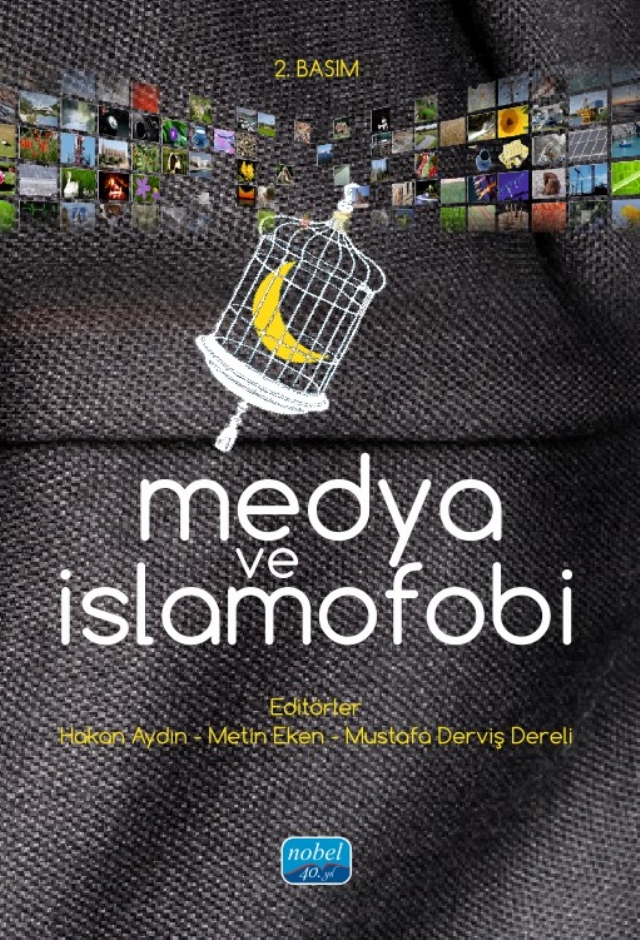
In recent years, Islamophobia, as an expression of fear based on prejudice and discrimination, has become one of the most fundamental psychological, social and political problems that lead to antipathy, hatred, violence and hostility towards Muslims all over the world. Exclusion in processes related to political administration, social responsibilities and employment; discrimination in the provision of services such as education and health; Prejudice in media and daily conversations and in daily life both verbal and physical violence produces many negative results. The media plays a very active role in the production and shaping of the perception that reveals these results. The effects of Islamophobic elements, which spread from traditional media elements to new media, have not yet been adequately addressed academically and sufficient information has not been produced to affect the policies on this issue. This study, which includes some important book reviews in addition to sixteen articles, is expected to constitute an important source for the questioning of the relation between the media and Islamophobia, as well as the relation between media and religion in Turkey.
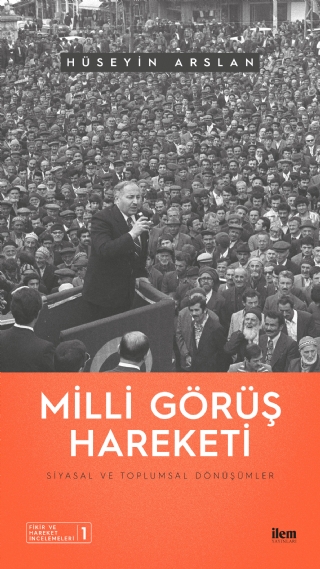
The book Milli Gorus Movement: Political and Social Transformations is an analysis of a movement that left its mark on the political history of Turkey and became the catalyst for social transformation. The Milli Gorus movement, which started with the entry of Necmettin Erbakan into politics in 1969, marks a turning point for Turkish political life and Islamist thought.
The history of Turkey cannot be analyzed clearly without considering the National Vision movement, which is the core of many social structures, institutions and political parties that still affect Turkish politics today.
With the "Idea and Movement Studies" series, it is aimed to present a framework and an original view on the main names, journals and issues that reflect the intellectual accumulation of Islamism and appear in almost every field. The books to be included in the series cover topics that are curious in different fields of Islamist thought. In this framework, it is aimed to contribute to the understanding of the issues on a basic and introductory level.
The history of Turkey cannot be analyzed clearly without considering the National Vision movement, which is the core of many social structures, institutions and political parties that still affect Turkish politics today.
With the "Idea and Movement Studies" series, it is aimed to present a framework and an original view on the main names, journals and issues that reflect the intellectual accumulation of Islamism and appear in almost every field. The books to be included in the series cover topics that are curious in different fields of Islamist thought. In this framework, it is aimed to contribute to the understanding of the issues on a basic and introductory level.

Studies on Islamic movements, or more specifically the Muslim Brotherhood, have often focused on ideological foundations or tensions with the political regime. Although there are a limited number of analyzes on the organizational structure of the movements, the way they are organized, the method of education and ideological indoctrination in these studies, the factor of institutionalization has always been left out of consideration in these analyses. The most important reason underlying this is that Islamic movements are not accepted as political institutions. Considering that political institutions are structures that attribute value and identity to their members, Islamic movements should be accepted as political institutions and their institutionalization processes should be taken into account, since they have similar characteristics. In this context, the book in your hand tries to answer the question of how the institutionalization processes of Islamic movements should be analyzed based on the assumption that they are also political institutions. In the book, in the example of the Muslim Brotherhood, which is considered the pioneer of Islamic movements, the institutionalization problem of the Movement is analyzed over six parameters, and the level of institutionalization of the structure is analyzed within the framework of its relationship with the Egyptian regime, in addition to the internal tensions and debates it has experienced since 1928.
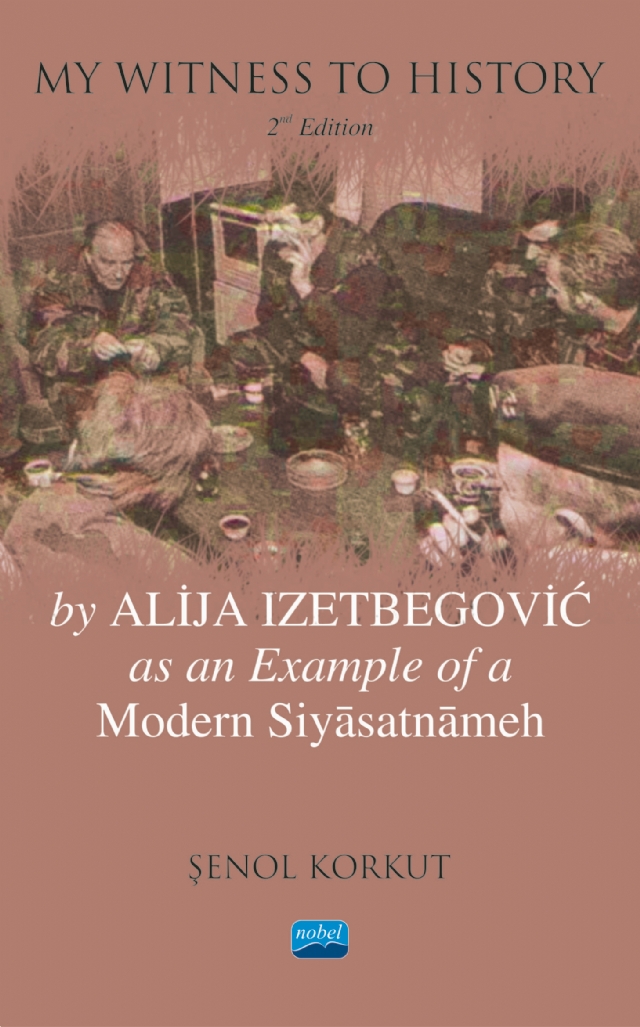
This book, subjects the basic dynamics of the Muslims of Bosnia and Herzegovina to a new reading through the memories of Alija Izetbegović (1925-2003), one of the most important Muslim intellectuals of the twentieth century. Izetbegović's pursuit of truth in his childhood and youth and his attitude towards the ideologies around him are taken in terms of the way a Muslim intellectual was brought up in the modern world. In the second part of the study, the importance of the Islamic Declaration for the current Islamic world, how to keep the Muslim identity alive under all conditions and the Islamic method to be developed for the policies of dimming the Muslim identity are examined. In the third part of the study, the importance of a Muslim party on the basis of the SDA and the principles to be derived from the struggle for existence during the Bosnia-Herzegovina war were examined. In the last part of the study, the current situation in Bosnia and Herzegovina after Dayton is discussed. The book seeks to construct a modern Siyāsatnāmeh based on the memories of Izetbegović.

The Middle East, which has been a center of attraction in every period of history due to its rich oil and natural gas deposits and being the center of monotheistic religions, is an unfortunate geography that has witnessed conflicts and wars in every period as a natural consequence of these characteristics. Factors such as power or prosperity revealed by classical approaches are insufficient to explain the events in international relations in the Middle East. Therefore, the internal dynamics of the region should be known very well. One of the most important internal dynamics in explaining the events in the region is the understanding of "Salaf" religion. This book explains the reasons for the events and conflicts in the Middle East by giving answers to questions such as what Salafism is, how it emerged, what historical processes it has reached today, what its types are, how it affects the people living in the region, events and international relations.

Although it is noteworthy that one of the cornerstones necessary to understand and make sense of the Middle East after the 2011 Arab uprisings is the relationship between politics and religion in the region, the importance of the issue is increasing day by day. As academics in Turkey, we tried to deal with the developments in the region and the background of the events.
As part of the ILEM Islamic Political Thought Project, we held a series of seminars under the heading "Politics and Religion in the Middle East". Our aim was to try to understand the politics-religion relationship in the region through different religious and political schools. In 2017, we tried to deal with issues in a different spectrum, from the origins of the two main currents in the region, $ii and Sunni political thoughts, to today's political reflections. Of course, the issues we deal with are neither limited to the seminars nor as they appear in the book; has much broader extensions. Nevertheless, we tried to produce a comprehensive and representative work.
As part of the ILEM Islamic Political Thought Project, we held a series of seminars under the heading "Politics and Religion in the Middle East". Our aim was to try to understand the politics-religion relationship in the region through different religious and political schools. In 2017, we tried to deal with issues in a different spectrum, from the origins of the two main currents in the region, $ii and Sunni political thoughts, to today's political reflections. Of course, the issues we deal with are neither limited to the seminars nor as they appear in the book; has much broader extensions. Nevertheless, we tried to produce a comprehensive and representative work.
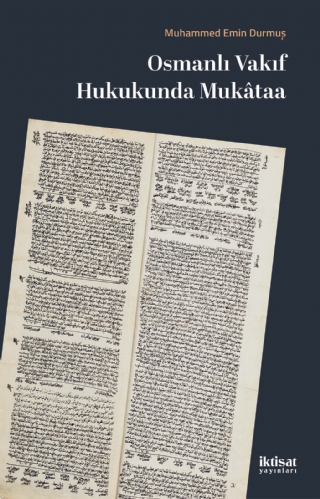
The concept of mukâtaa is used to express practices that have different legal consequences in foundation law, as in Ottoman financial law. In this study, the focus is mainly on the practice of mukataa, which means renting the foundation land to anyone who wants to build a building or plant a tree, with the right of decision and ownership of it. The foundations of the mukâtaa practice date back to before the Ottoman Empire, and the Ottomans further developed this practice, which they inherited, with some arrangements and used it for centuries. However, Ottoman lawyers, who saw that the mukâtaa practice caused the abuse of foundations over time, did not insist on this practice, on the contrary, they developed the more advantageous icâreteyn practice for foundations. This shows that mukataa paved the way for the practice of icareteyn. In this book, the historical background, nature, different practices, conditions, legal principles and rights of the mukataa contract in the 16th and 17th centuries have been tried to be revealed, especially based on fatwa journals and sharia registers.

Death, which is intertwined with life and its only reality, has always attracted people's attention. Death, which we do not have a definite knowledge about what it is, continues to be a problem in philosophy from ancient times to this day. In fact, thinking about life rather than death because of the mysteries it carries is the wisest way of coping with death. Because the fear of death rather than death is abrasive and distracts people from their originality. Making sense of one's life with this perspective, organizing it accordingly, revealing its own meaning and value will be its only victory against death.

Our first goal in preparing this voluminous work is to enable our new generations to meet with the creative thoughts of their grandfathers and fathers in the recent past; to enable them to see everything with their own eyes and think with their own minds, and to help them circulate their own ideas. In this regard, we will not first lease our minds to the West or borrow their minds and lie on it. Because not only they are thinking, we are thinking too, we are also making “production ideas”.
Today, Turkey is located in the "periphery", not the center that determines and determines the intellectual agenda in the world, and often acts in a peripheral situation depending on the agendas determined by the center.
Therefore, our second goal is to help pave the way for getting out of the periphery and being at the centre. At the same time, it is to help the revival of our civilization, which we belong to in history, as an alternative, and to contribute to our thought life in its rebuilding.
This book also aims to reveal that contemporary Turkish thought is strong enough to be showcased in the world thought arena. If the development of our intellectual life towards its “natural medium” continues, it is certain that Turkish thought will make a significant contribution to world thought by producing newer and more original ideas. Now, we should leave behind the period of self-evaluation according to the thoughts of Western thinkers, and aim at the level where they can evaluate their own thoughts by looking at our products of thought, as in the past. We must be aware of it, so that we can move on to the periods of producing more of our new and universal ideas.
Today, Turkey is located in the "periphery", not the center that determines and determines the intellectual agenda in the world, and often acts in a peripheral situation depending on the agendas determined by the center.
Therefore, our second goal is to help pave the way for getting out of the periphery and being at the centre. At the same time, it is to help the revival of our civilization, which we belong to in history, as an alternative, and to contribute to our thought life in its rebuilding.
This book also aims to reveal that contemporary Turkish thought is strong enough to be showcased in the world thought arena. If the development of our intellectual life towards its “natural medium” continues, it is certain that Turkish thought will make a significant contribution to world thought by producing newer and more original ideas. Now, we should leave behind the period of self-evaluation according to the thoughts of Western thinkers, and aim at the level where they can evaluate their own thoughts by looking at our products of thought, as in the past. We must be aware of it, so that we can move on to the periods of producing more of our new and universal ideas.
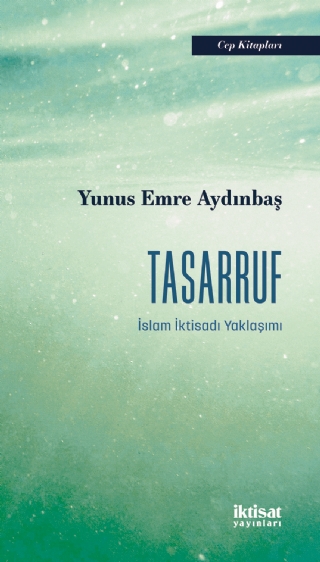
In this sixth book of the Pocket Books series, which aims to deal with the basic institutions and issues of Islamic economics in a content that can be easily understood by people of all levels, rather than a theoretical depth; The issue of saving, which has not received the attention of Islamic economics researchers, has been handled not only from an economic point of view, but also from a multifaceted perspective in terms of social, legal, moral and cultural aspects.
Despite its small volume, the work reveals the current state of Islamic economic studies through the concept of savings, and invites the reader to a modest search for the political economy of Islam from the crossroads of thought on the question of how the savings phenomenon can be shaped in Islamic economy.
Despite its small volume, the work reveals the current state of Islamic economic studies through the concept of savings, and invites the reader to a modest search for the political economy of Islam from the crossroads of thought on the question of how the savings phenomenon can be shaped in Islamic economy.

Taşköprülüzâde Ahmed Efendi left his mark on Ottoman thought as a versatile scholar. In this book, besides examining the life story of Taşköprülüzâde in detail, we tried to position him in his family, starting with his grandfathers, to describe him in the context of his teachers, peers and students, to classify and introduce his works. We included the life stories of three generations of the Taşköprülüzâdeler family and tried to write a collective life story. We have published an unknown work of Taşköprülüzâde that contains autobiographical records. In addition, the relations of the members of four generations of the family with the bureaucracy of the period were discussed in a separate article. The story of Taşköprülüzâde, which is told here and discussed in a broad framework about how an Ottoman scholar grew up and how he produced, claims to present a model for the writing of the "ulema biography" and the studies of the ulema. Our study, in a more general sense, is a candidate to be a cornerstone in the studies of Ottoman ilmiye with its "ulema family monograph" feature.
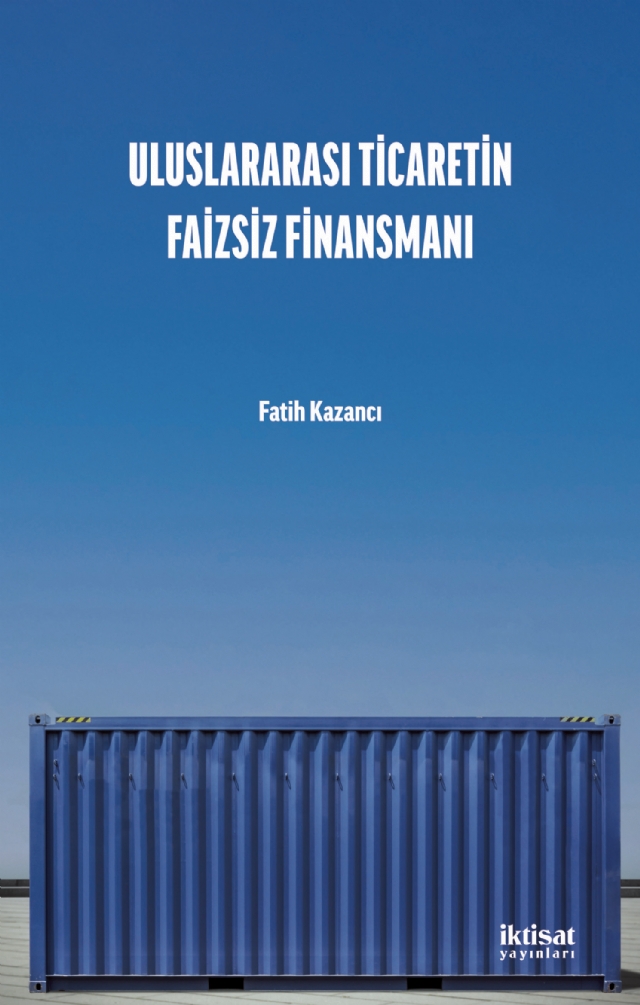
When we look at the world in general, not only conventional banks but also interest-free banks finance international (foreign) trade. Conventional banks can finance all kinds of legal goods or services with interest. Interest-free banks, on the other hand, can only mediate for goods that are halal to trade while financing international trade, and they can provide financing to international traders only with interest-free financing products. This book in your hand focuses on various interest-free financing products of interest-free banks and which interest-free financing products can support international traders. Thanks to this book, the reader will have the opportunity to learn about the development of international trade in our nearby geography, to get to know the interest-free institutions that support international trade, the types of contracts used in interest-free financing, and the current interest-free international trade finance products that have applications around the world.
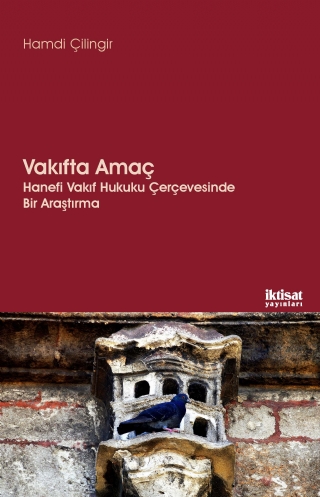
The foundation is a very important institution that takes its essence from the understanding of charity and infaq in Islam, has developed and enriched with the experiences of Muslims in the historical process, and covers almost all areas of life with the purposes it serves. Islam, on the one hand, obliges Muslims to perform obligatory sadaqah (sadaka-i vâcibe) such as zakat, alms, and tithe, on the other hand, encourages them to do voluntary sadaqah (sadaka-i nafilah). Among these futile types of charity, the foundation has followed a very important development course in history in terms of institutionalism, prevalence and the purposes it serves. The freedom of the person who established a foundation to set a purpose for his foundation has revealed a wide variety of purposes in foundations over time. Indeed, this diversity of aims has been well documented and demonstrated in historical studies.
This book approaches the issue of purpose in the foundation from a different perspective, deals with the issue in a legal framework and tries to draw a theoretical framework for the purpose of the foundation.
This book approaches the issue of purpose in the foundation from a different perspective, deals with the issue in a legal framework and tries to draw a theoretical framework for the purpose of the foundation.
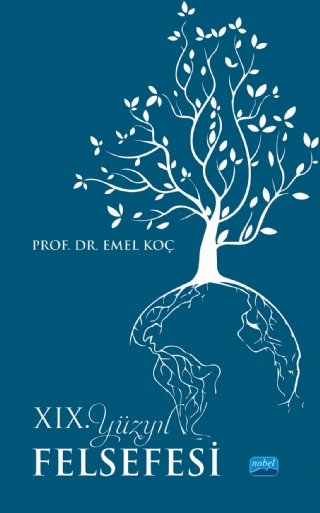
XIX. century; XX. It is a period in which the foundations of many philosophical movements of the 20th century were laid, and the history of philosophy was as "productive" as it was "intensive" in the intellectual sense. XIX. The intellectual life of the twentieth century is more complex and intense than at any previous period in the history of philosophy. It can be said that the intellectual complexity and intensity of the century is due to the existence of different factors that feed and shape the intellectual environment. XIX. Among the main sources feeding the philosophy of the XVI century. scientific developments since the century; technological developments shaped accordingly and completely changing the living standard of people; The beginning of the Industrial Revolution, which changed Western people from head to toe with scientific and technological developments, and the XVIII. The American and French Revolutions, which were influenced by the Enlightenment Age thinkers of the 20th century, and the striking political events in European and world history brought about by the Revolutions can be counted. XIX. The commemoration of the 19th century with the emphasis on different qualities such as the "Century of History", "The Century of Natural Sciences", "The Century of Techniques and Inventions", and "The Age of Ideology" reflects the productivity of the century and its scientific, technological, political and social development and transformation.
XIX. In this work named Philosophy of the Century; On the one hand, philosophers such as GWF Hegel, KH Marx, A. Comte, J. Bentham, SA Kierkegaard, F. Nietzsche who reflected the spirit of the period and reflected the spirit of a period with such intellectual richness and complexity, and on the other hand, there are not enough academicians in our country yet. neglected philosophers such as FH Bradley and J. Royce, for whom the study is not available, are included.
XIX. In this work named Philosophy of the Century; On the one hand, philosophers such as GWF Hegel, KH Marx, A. Comte, J. Bentham, SA Kierkegaard, F. Nietzsche who reflected the spirit of the period and reflected the spirit of a period with such intellectual richness and complexity, and on the other hand, there are not enough academicians in our country yet. neglected philosophers such as FH Bradley and J. Royce, for whom the study is not available, are included.
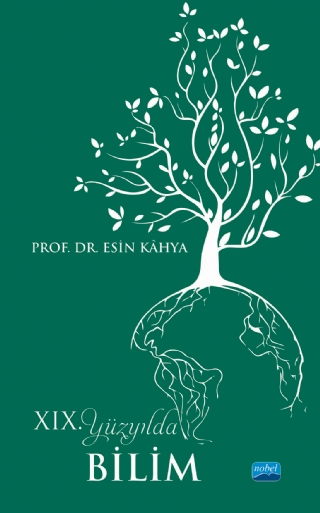
In general, the nineteenth century is a period of political, economic, social and cultural restructuring all over the world. It is possible to determine this change not only in political life, but also in social structuring, various branches of art, philosophy and science.
In this period, the steps taken in different branches of science, such as mathematics (calculation of probability, etc.), astronomy (finding new planets and studies on the universe system, etc.), physics (electricity and mechanics, etc.), chemistry (atomic theory, organic and inorganic chemistry). studies), developments in biology (the theory of evolution and heredity, cell research, etc.) and developments in medicine (microbiology, pathology, developments in physiology, etc.) have determined the scientific problematic of the twentieth and twenty-first centuries. Today, we continue to build our scientific structure on the foundations laid at that time.
In this period, the steps taken in different branches of science, such as mathematics (calculation of probability, etc.), astronomy (finding new planets and studies on the universe system, etc.), physics (electricity and mechanics, etc.), chemistry (atomic theory, organic and inorganic chemistry). studies), developments in biology (the theory of evolution and heredity, cell research, etc.) and developments in medicine (microbiology, pathology, developments in physiology, etc.) have determined the scientific problematic of the twentieth and twenty-first centuries. Today, we continue to build our scientific structure on the foundations laid at that time.
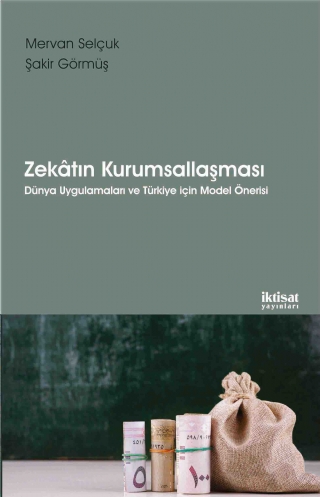
The connection of Muslims with zakat has decreased day by day and has almost reached the breaking point. It is seen that there is a decrease in the number of people who calculate zakat in accordance with its originality and deliver it to those who deserve it. While the zakat potential of Islamic countries can easily eliminate the problems of income distribution and poverty, the insufficient institutionalization of zakat causes many socio-economic problems and an inability to effectively combat existing problems. Hz. Although it cannot be collected and distributed under the authority of the state and forcibly, as in the Sunnah of the Prophet (pbuh), it is seen that zakat is tried to be implemented in an institutional structure with state support in countries such as Malaysia, Indonesia and Pakistan. In this study, information about the countries where zakat is applied in an institutional structure is given and these zakat institutions are examined comparatively. In the light of this information, taking into account the existing legal and institutional structures, a model has been created for a modernly applicable zakat institution in Turkey.
